مطبوعات
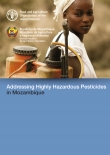
This project was implemented to develop a methodology to identify HHPs in a country and to develop a risk mitigation plan in consultation with the main stakeholders.
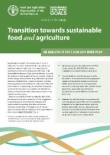
This brochure has been prepared for the participants of the 2nd International Symposium on Agroecology. It provide an analysis of FAO’s work plan for the forthcoming biennium 2018-19 and describe its contribution to agroecology.
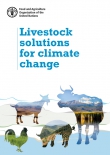
Livestock are key to food security. Meat, milk and eggs provide 34% of the protein consumed globally as well as essential micronutrients such as vitamin B12, A, iron, zinc, calcium and riboflavin. But their contribution to food security and nutrition goes well beyond that, and includes a range of other goods and services, such as animal manure and traction. Hundreds of millions of vulnerable people rely on livestock in a changing climate, because of animals’ abilities to adapt to marginal conditions and
withstand climate shocks.
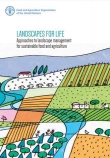
The adoption of the Sustainable Development Goals (SDGs) established a vision for the future, which is as transformational as it is ambitious. They represent a determined agenda, intended to address an unprecedented confluence of pressures on human development and the global environment. Perhaps most importantly, the SDGs represent a strategy that is “integrated and indivisible”, explicitly recognizing that shifting the course of human history onto a sustainable pathway will require new thinking in how we tackle complex problems which transcend sectors and scale. This vision for integration is also at the heart of FAO’s strategy for sustainable food and agriculture.
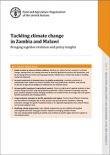
To respond to the diverse effects of climate change on food systems requires close dialogue and interaction between the research community and policy-makers. Strengthening this relationship will ensure that research findings are relevant to policy debates, and that policies are informed by up to date and rigorous analysis. This brief summarizes key findings from a multidisciplinary team of agronomists, livestock scientists, climatologists and economists for the Food and Agriculture Organization of the United Nations (FAO) working in Malawi and Zambia.

